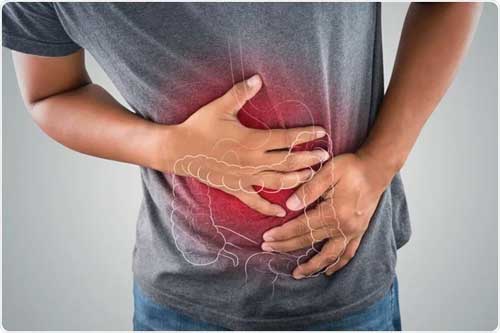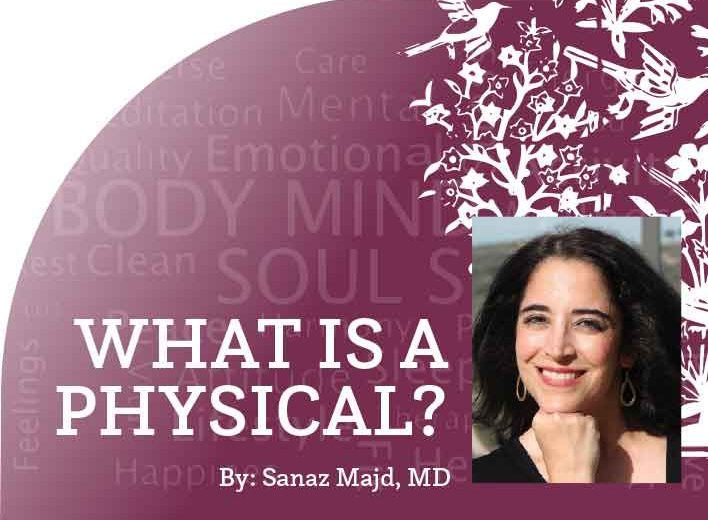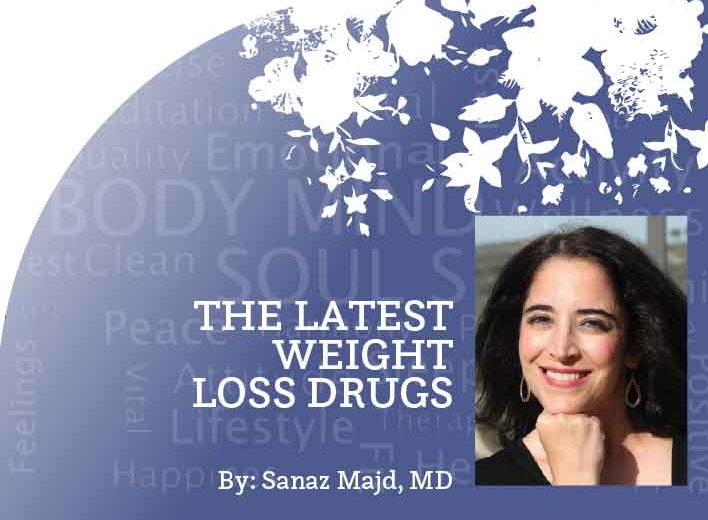If you suffer from a recurrent or chronic myriad of gastrointestinal (GI) symptoms that may include abdominal pain/discomfort, bloating, constipation, and/or diarrhea, they may potentially be due to a frustrating medical condition called Irritable Bowel Syndrome (IBS). It is a rather common condition that may be left undiagnosed in many, but is associated with an estimated $1 billion dollar annual medical cost in the U.S.

The prevalence of IBS in the U.S. is somewhere between 10-15% of the population and, according to a systemic review studying its prevalence in Iran, it is reported that as high as 25% of Iranians may suffer from IBS in certain populations.
Could you be one of them?
SYMPTOMS OF IBS
IBS is regarded as a condition arising from the dysfunction of the “gut-brain axis,” as many patients experience symptoms that are psychologically driven. There is a strong physiological connection between our brain and GI system; stress and emotion often play a large role in the frequency and severity of the symptoms in some people with IBS. Therefore many, but not all, concomitantly suffer from anxiety, depression, and/or report symptoms driven by stress or emotion.
Interestingly, there is a higher prevalence in young people (adolescence through 30s) and also women. Although, older people and men certainly do suffer from IBS as well.
Not everyone with IBS has the same exact symptom profile, and the severity can vary on a spectrum from mild/occasional symptoms to severe/frequent. Problem with stooling is a commonly reported issue — some experience predominantly diarrhea, while others report a constipation predominance. There are also those who experience mixed bowel habits and go back and forth between diarrhea and constipation throughout their lives. But almost all IBS patients report some type of abdominal discomfort, which may include a sensation of bloating as well.
IBS can mimic other more concerning medical conditions, however, such as Celiac Disease, Inflammatory Bowel Disease (such as Crohn’s or Ulcerative Colitis), and, less commonly, colon cancer. However, these patients often experience red flag signs and symptoms that often prompt further evaluation, such as:
- Rectal bleeding
- Unintentional weight loss
- Anemia, especially if iron-deficiency anemia (often discovered via a simple blood test)
- Recent change in bowel function or appearance (such as small-caliber stools)
Also, new onset of symptoms after the age of 45 is of particular concern, most especially if the above red flags are also present. And those with a family history of colon cancer, Inflammatory Bowel Disease, or Celiac Disease also pose a greater concern.
DIAGNOSIS OF IBS
A specific test to diagnose IBS does not exist. It is typically a diagnosis of “exclusion,” which denotes the need to rule out other conditions first, and is often discernible based on history alone.
However, a blood test to screen for Celiac Disease, anemia, and thyroid disorder (which can cause changes in stooling) is useful to rule out other potential causes. A colonoscopy may be recommended in some in order to rule out Inflammatory Bowel Disease, along with colon cancer in older people (especially over age 45). But most young, healthy people do not necessarily require a colonoscopy in order to evaluate for IBS. Your doctor may decide to order one depending on your symptoms and severity, however.
Note,”food allergy” testing is not diagnostic or useful in IBS, and not routinely recommended.
TREATMENT OF IBS
Unfortunately, a miracle pill or treatment to fully eradicate IBS does not exist. Treatment is often tailored based on the predominant symptoms.
For diarrhea predominance, over the counter (OTC) loperamide can help alleviate the watery stools. There is some evidence that prescription tri-cyclic antidepressants (TCAs), such as amitriptyline, can improve diarrhea in IBS patients, as well.
For those with constipation predominance, an osmotic laxative, such as the OTC generic for Miralax, would be a handy tool to have in your medicine cabinet. “Osmotic” laxatives refer to the pooling of fluid into the stool, as opposed to other laxatives which work as stimulants with greater side effect profiles. There are also several newer prescription drugs on the market for those who suffer from chronic constipation, including lubiprostone, linaclotide, and plecanatide. But they are currently only available as a brand drug, may be costly, and insurance coverage may be a challenge.
For abdominal discomfort, there are some studies supporting the use of peppermint oil, along with prescription TCAs, and anti-spasmodics that inhibit GI spasms that may contribute to abdominal discomfort (such as hyoscine and dicyclomine).
The role of fiber has not been entirely established in IBS. Some studies report improvement and others do not. However a trial of psyllium at a starting dose of 1/2 to 1 tablespoon daily is a worthwhile effort. The amount of daily fiber can then be gradually increased through time in order to avoid exacerbation of symptoms with an initial large dose.
There is also some data, although not substantial, that the following treatment modalities may also help alleviate IBS symptoms:
- Exercise, walking, yoga
- Relaxation techniques (such as diaphragmatic breathing)
- Acupuncture
- Psychotherapy (especially Cognitive Behavioral Therapy)
But we need more studies to substantiate their specific roles in IBS.
DIETARY MODIFICATION
There is limited evidence that a “gluten-free diet” would be useful in IBS, but there is a smaller, select segment of patients I have seen who vouch for it. The hypothesis is that the improvement in symptoms may not necessarily be due to gluten restriction, but the concomitant removal of fructans in the same food items.
However, more specific to IBS, there is some data supporting a “FODMAPs” diet — this refers to a diet low in fermentable oligo-, di-, and monosaccharides and polyols. These foods include ingredients such as fructose, honey, lactose, sorbitol, mannitol, maltitol, and xylitol, which are short-chain carbohydrates that are poorly absorbed and rapidly fermented and may be responsible for certain GI symptoms. Besides dairy, this means eliminating wheat, barley, garlic, onions, beets, cashews, pistachios, lentils, legumes, chickpeas, apples, pears, and various other fruits and veggies. A lot of good stuff.
Of course, there is nutritional value in many of these foods and it is not recommended to eliminate them from your diet unless they actually pose a problem for you. Therefore, it may be useful to implement an “elimination diet,” restricting all foods on the list for 6-8 weeks and then gradually reintroducing each food item back into the diet. A referral to a dietician that can navigate this process is highly recommended.
It may also be useful to keep a symptom/food diary in order to discern any dietary trigger(s), such as lactose contained in dairy. Up to 65% of adults are reportedly lactose-intolerant. In a blank notebook, split the page in half — on the left write down the timing and your specific food consumption, and on the right jot down any symptoms. Patients who actually complete this exercise often report other potential dietary triggers as well, such as spicy foods, gas-producing foods, artificial sweeteners, etc. So, although time-consuming, it is a worthwhile effort if the IBS is impairing your quality of life.
REFERENCES:
1. Camilleri M., Diagnosis and Treatment of Irritable Bowel Syndrome: A Review. JAMA,325(9):865–877 (2021). doi:10.1001/jama.2020.22532
2. Jahangiri P, Jazi MS, Keshteli AH, Sadeghpour S, Amini E, Adibi P. Irritable Bowel Syndrome in Iran: SEPAHAN Systematic Review No. 1. Int J Prev Med. 3(Suppl 1):S1-S9 (2012).
3. Böhn L, Störsrud S, Liljebo T, Collin L, Lindfors P, Törnblom H, Simrén M. Diet low in FODMAPs reduces symptoms of irritable bowel syndrome as well as traditional dietary advice: a randomized controlled trial. Gastroenterology. Nov;149(6):1399-1407.e2 (2015). doi: 10.1053/j.gastro.2015.07.054. Epub 2015 Aug 5. PMID: 26255043.
Sanaz Majd, MD is a board-certified Family Medicine physician and host of the Majd MD YouTube channel, reviewing the latest medical topics and headlines: www.youtube.com/MajdMD. You can also follow her on Facebook or Instagram: @SMajdMD.


















